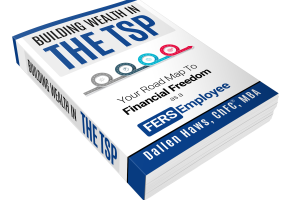Yep, you heard right. Not everyone can keep FEHB (your federal health insurance) into retirement.
You have to be eligible.
This article will show you how to be eligible as well as to make sure your spouse can keep it after you are gone!
Eligibility to Keep FEHB Into Retirement
There are two big criteria that you have to meet to keep FEHB into retirement.
You have to:
● Retirement with a immediate retirement
○ For traditional FERS, this includes retiring with at least:
■ 30 years of service at your MRA (minimum retirement age)
■ Or 20 years of service at age 60
■ Or 5 Years of service at age 62
■ Or 10 years of service at your MRA (MRA+10 Retirement)
● You also need to have been covered by FEHB continuously for the 5 years before retirement.
What If Spouse is Also a Federal Employee?
If your spouse is also a federal employee then it doesn’t matter who is officially carrying the FEHB plan as long as you are covered under FEHB for the 5 years before retirement.
For example, let’s say you and your spouse are feds and you are the one that has a Self+One plan that covers both you and your spouse. As long as your spouse retires with an immediate retirement then they’d be able to keep FEHB into retirement on their own record if they wanted.
But…
But where people get into trouble is when they choose to be on a spouse’s health insurance who is not a federal employee. In this situation you will just want to make sure you jump back on FEHB at least 5 years before retirement.
What if I’m on Tricare? Exception to the 5 Year Rule
Those on Tricare have an exception to the 5 year rule. If you have Tricare then that can fulfill the 5 year requirement as long as you are covered under FEHB on the day you retire.
For example, let’s say you have tricare for the 5 years before retirement but you also jump into FEHB in the last year of retirement. In this case you’d be eligible to keep FEHB into retirement because your Tricare fulfilled the 5 year rule and you had FEHB at retirement time.
Leaving FEHB for Your Spouse
So now that you’ve successfully retired and taken FEHB with you, the next thing you want to make sure is that your spouse can continue FEHB even after you kick the bucket.
The one big requirement is that you elect a survivor benefit on your pension for your spouse.
So no survivor benefit, no FEHB for your spouse, at least after you pass.
The survivor benefit is chosen (or not chosen) on your retirement application.
Here are the 3 survivor benefit options and as long as you pick one of the first two then you and your spouse are good to go.
- Full Survivor Benefits: It costs you 10% of your pension and your spouse is left with 50% of your pension if you pass first
- Partial Survivor Benefits: It costs you 5% of your pension and your spouse is left with 25% of your pension if you pass first
- No Survivor Benefits: It costs you nothing and your pension goes away when you pass.


